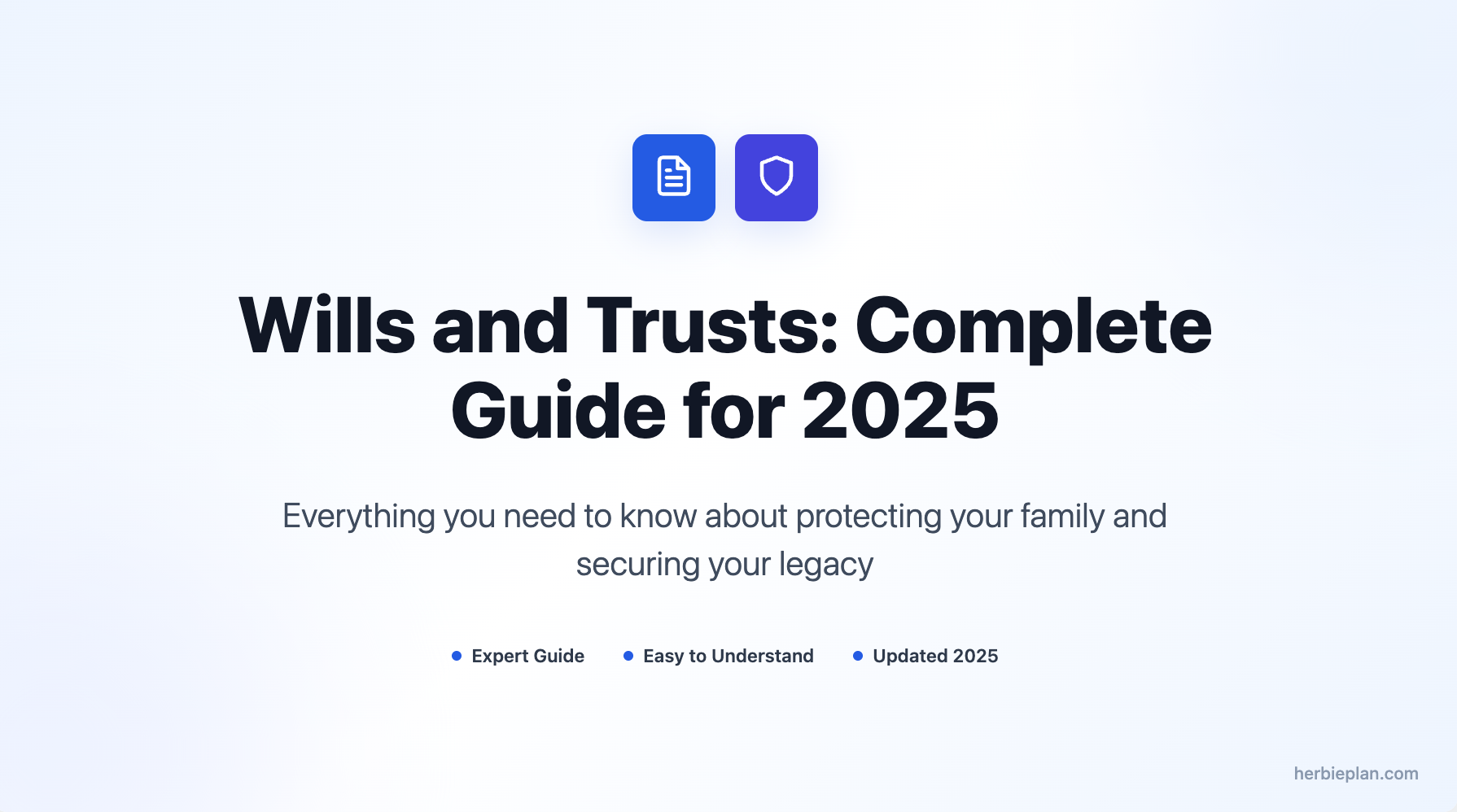Join the waitlist to secure early pricing.

When it comes to estate planning, wills and trusts are the two most important documents you'll need. Despite their importance, many people feel confused about what each does and when they need them. This guide breaks down everything you need to know in plain language.
A will (or last will and testament) is a legal document that controls what happens to your assets after you die. It allows you to:
The key thing to understand: a will only takes effect when you die, and it must go through probate—a court-supervised process that can take 6 months to 2+ years and may cost 3-7% of your estate value in fees and expenses. Once in probate, your will becomes a public document that anyone can view.
A trust is a legal arrangement where a trustee manages assets for beneficiaries according to your instructions. Unlike wills, trusts:
Wills must go through probate, which means court supervision, public records, potential for contests, and costs of 3-7% of your estate. Assets in a properly funded trust can skip probate entirely, providing immediate access to beneficiaries with no court involvement or public disclosure.
A will only works after you die. If you become incapacitated beforehand, it provides no help. A trust works immediately—if you become unable to manage your affairs, your successor trustee can step in without court involvement in connection with the assets already held in your trust.
Wills become public once they enter probate. Anyone can see what you owned and who inherited it. Trusts generally remain private, keeping your financial details and family matters confidential.
Wills cost $0-$200 to create with modern online services (or $1,000-$3,000 with attorneys), but probate can cost thousands of dollars. Trusts often cost $1,500-$3,000 upfront with an attorney, but assets in a funded trust avoid probate costs entirely. With a Herbie One subscription, though, trusts have now become more affordable than ever.
For many people, a comprehensive will may be sufficient. For example:
With modern platforms like Herbie, you can create a complete will in 15-20 minutes for under $150.
Consider adding a trust to your estate plan when:
Most people with trusts have a "pour-over will" that:
The most popular type. You can change or cancel it anytime, you maintain control, and it avoids probate while keeping your estate private (if you've transferred assets to the trust during your lifetime). Generally, these trusts don't have tax benefits while you're alive, but provides flexibility and peace of mind.
Generally can't be changed once created. Most are created for tax and asset protection purposes, but they generally include giving up certain levels of control. Primarily used by high-net-worth individuals or those with specific asset protection needs.
For beneficiaries with disabilities, allowing you to provide for them without disqualifying them from government benefits like Medicaid or SSI.
Don't wait for the "right time." Unexpected events happen at any age. Start with a will today—it takes less than 20 minutes.
Review your estate documents annually and after major life events like marriages, divorces, births, deaths, or significant financial changes.
Your retirement accounts and life insurance pass by beneficiary designation, not your will. Make sure everything aligns with your intentions.
Follow signing and witnessing requirements, or your will could be invalidated.
Creating a trust isn't enough—you must transfer assets into it. An unfunded trust provides none of the benefits you created it for.
Start with a basic will, powers of attorney, and healthcare directives. Trusts are often unnecessary unless you have significant assets or special circumstances (including children).
Comprehensive will with guardian nominations is the foundation. Consider a revocable living trust if you have more than $300,000-$500,000 in assets, have minor children, care about privacy, or other reasons mentioned above.
If your estate has grown significantly, consider adding a revocable living trust if you haven't done so previously (or start transferring assets to it to avoid probate and ensure privacy). Update your will to function as a pour-over will. Don't forget about your ancillary documents, like a power of attorney or healthcare directive.
Continue to get your affairs in order, including updating your will and trust, checking beneficiaries, and making sure your power of attorney and healthcare directives are in place.
For most people, estate taxes won't come into play. Although some states do have an estate or inheritance tax that should be considered, the federal estate tax exemption is $13.99 million per person in 2025 ($27.98 million for couples). In 2026, the exemption will rise to $15 million for an individual ($30 million for couples). Unless your estate approaches these levels of wealth, the assets will pass free of federal estate tax.
Some states have their own estate taxes with lower thresholds (Massachusetts at $2 million, for example), so check your state's rules.
Take inventory of your assets, identify beneficiaries, and evaluate your estate planning goals.
Most people should start with a comprehensive will. Add a trust at any time if your estate grows or circumstances become more complex.
For wills, modern platforms like Herbie provide professional-quality documents for under $150. For trusts, subscribe to Herbie One at a very affordable price to build a strong Revocable Living Trust.
Follow signing and witnessing requirements. For trusts, ensure you actually transfer assets into them.
Check your documents annually and update after major life events.
The most important step is starting now. Don't leave your family dealing with complications, expenses, and uncertainty. Get started today and take the first step in protecting your loved ones and your legacy.